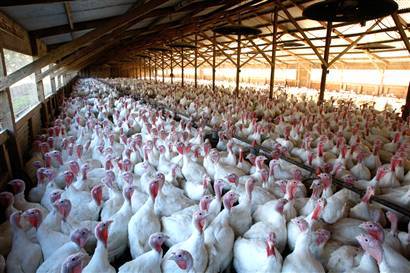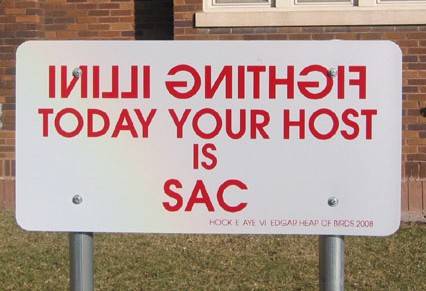Thanksgiving may be one of the most controversial national holidays of the year. While it is technically a simple harvest festival, its American historical beginnings are more problematic. The typical story of mutual harmony between the Native Americans and Pilgrims has been romanticized to the point of egregious inaccuracy.
Perhaps we would portray the story of Thanksgiving more accurately if we specified that the thanks being given was not one of mutual respect between the two groups of people. Rather, the the first Pilgrims were more likely thanking the Native Americans for saving them from certain starvation and death. This, before paying them back with centuries of oppression and theft that continues to this day. Perhaps as a small compensation, in June President Obama signed a law that names the Friday after Thanksgiving Native American Heritage Day, to “honor the achievements and contributions of Native Americans to the United States.”
 In addition to the uncomfortable historical facts, there’s the ever-present animal rights issue. Americans eat forty-five million turkeys each Thanksgiving. I’ll spare you all the details, but suffice it to say that even most free-range turkeys have been genetically modified to the point where their legs break and males can’t properly mount females (and thus reproduction would cease without mankind’s syringe to inseminate the hens). Then there are the usual concerns of factory farming with, for example, open sores and intestinal worms being classified as “aesthetic problems” by the USDA. Of course, this is not to draw a parallel between the suffering of turkeys and the suffering of Native Americans, but rather to show just a couple of the issues that arise when one considers the implications of “celebrating” Thanksgiving.
In addition to the uncomfortable historical facts, there’s the ever-present animal rights issue. Americans eat forty-five million turkeys each Thanksgiving. I’ll spare you all the details, but suffice it to say that even most free-range turkeys have been genetically modified to the point where their legs break and males can’t properly mount females (and thus reproduction would cease without mankind’s syringe to inseminate the hens). Then there are the usual concerns of factory farming with, for example, open sores and intestinal worms being classified as “aesthetic problems” by the USDA. Of course, this is not to draw a parallel between the suffering of turkeys and the suffering of Native Americans, but rather to show just a couple of the issues that arise when one considers the implications of “celebrating” Thanksgiving.
Given these matters, why do we still celebrate this holiday in the manner that we do? It seems perfectly reasonable that Thanksgiving would be more of an ascetic holiday, one devoted to reflection rather than gluttony.
The answer is simply that most Americans have a deep emotional attachment to the holidays, and particularly Thanksgiving. A Thanksgiving wouldn’t seem right without a turkey as the main meal. And it’s become a time to cook a big dinner and see extended family members, not a time to reflect on a real downer of a historical significance.
Now, please don’t assume that I am making fun of this emotional attachment. We often form connections to such events during early childhood, and no one likes giving up such a warm, reliable source of pleasure. As a child, I loved eating turkey on Thanksgiving. Perhaps my favorite part was begging for the “coins,” the best of the turkey’s dark meat. Later, when I gave meat up entirely, my grandmother was shocked at Thanksgiving, since she didn’t realize I wouldn’t even eat turkey — it was Thanksgiving after all! Emotional attachments are not to be taken lightly, and it’s understandable that people wouldn’t want to give up all the annual pleasantries in favor of abstaining from meat and remembering unpleasant historical facts.
But where do we go from here? Do we shrug and continue to eat genetically modified, potentially cancerous turkeys that have been fed pesticides and growth hormones? Do we continually give thanks at the dinner table for the food and togetherness, and simply forget that we’re basically celebrating a holiday with roots in a tradition of theft and injustice? And then, how do we even go about celebrating the day after, heretofore known as Native American Heritage Day — that day of the year which is of course much more famously known as Black Friday? Would going out to Best Buy in hopes of getting a great deal on the latest Apple product count?

As Americans we should ask ourselves these questions. We should answer them too. This year, as an attempt to celebrate Thanksgiving, while keeping these two very important issues in mind, I woke up on Thursday and read about the Illinois Native Americans who once inhabited this land. Later, I joined family members in cooking an entirely vegan meal for our Thanksgiving feast. While I’m not entirely satisfied with how I celebrated Thanksgiving, I am glad to be taking tentative steps toward more positive and mindful modes of celebration.








